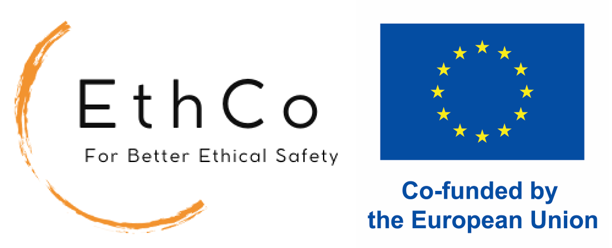Brewing Ethics: The Role of the Ethical Coffee Room in Ethics Education

At the heart of any educational institution or organisation is a space where ideas percolate, conversations brew, and ethical dilemmas are often discussed over a cup of coffee. The coffee room, often seen as a casual retreat, can be transformed into a powerful tool for teaching and practising ethics.
Imagine a coffee room where every choice, from the beans we brew to the waste we manage, reflects our commitment to ethical principles. It’s not just about fair trade coffee or biodegradable cups; it’s about creating a microcosm of ethical practice that students and professionals in the field can engage with daily.
In EthCo project’s ethics educational course, Ethics Coaching, the coffee room serves as a living lab. Here, we explore the choices and impact of our choices on the patient, a colleague, an organisation we are working in, and even society. By integrating ethical considerations into our daily routines, we not only learn about ethics but live it. This hands-on approach helps bridge the gap between theoretical knowledge and practical application, making ethics a tangible part of our everyday lives.
Originally, Ethical Coffee Room (ECR) is an electronic platform, where the students, nurses and teachers discuss ethical issues during students’ clinical practice. It was developed in 2017 in Finland at the Turku University of Applied Sciences, as a part of the Intensive Care Unit (ICU) game. Based on the ECR, the project SimE – ‘Simulation pedagogy in learning ethics in health care’ – was created. EthCo project continues the work started in the previous SimE project. In the EthCo project, the ECR is not only taking place in digital form, but also in face-to-face discussions.
The method of Ethical Coffee Room includes reading theoretical material, such as research articles in ethics, ethical standards and collegiality norms, contributions for discussion of ethical dilemmas and reflection of one’s own learning. There are two different types of having the discussions. Firstly, the discussions are based on the cases/vignettes created by the teachers and/or mentor professionals. Secondly, the students present patient cases or ethical dilemmas which they have faced during the clinical practice. The teachers and/or mentors lead the discussions and encourage reflections of the students.
In EthCo project, we used the ECR both in a digital Moodle-platform and in face-to-face discussions during project’s international intensive week in Malta. Before starting the ECR, the nursing and physiotherapy students joined the Ethics Coaching Theoretical part of the course (2 ECTS), including lectures on ethics, podcasts, writing tasks and quizzes. Students also received orientation and instructions about the ECR as a learning method. The cases/vignettes for ECR were developed by the teachers and students from each project partner country and were based on authentic patient stories. Both in the digital platform and during the intensive week, the students were divided into bigger and smaller multiprofessional and international discussion groups, and the teachers supervised the discussions in the ECR.
Feedback from the Ethical Coffee Rooms discussions was collected during the intensive week. Students found the ECR to be a great way to discuss and open up about a case without putting anyone on the spot and so that everyone could contribute without the feeling of judging others. They felt that they had learned a lot from everyone involved, teachers, professionals and students, during the international face-to-face sessions. The students considered the cases well-developed, enabling to explore the situation from various angles. They reminded each participant of the laws and regulations in their respective countries.
Being part of a small group allowed students to open up about their personal experiences. Ethical coffee rooms encourage engagement and critical thinking. The students preferred talking instead of writing in this ethics context and considered that it would be ideal to have these sessions more frequently, not just in the classrooms but also in the workplace.
We, the members of the project consortium, can relate to the students’ experiences in and opinions about the Ethical Coffee Room. This approach is incredibly useful as it exposes us to multiple viewpoints, enhancing our learning. We believe it’s a golden learning method because it fosters critical thinking, a crucial skill in our workplaces in the field of health care.
Authors:
Kati Naamanka, Turku University of Applied Sciences, and
Katri Manninen, Karolinska University Hospital
Reference:
Manninen K, Björling G, Kuznecova J, Lakanmaa R-L. Ethical Coffee Room: An international collaboration in learning ethics digitally. Nursing Ethics. 2020;27(8):1655-1668. doi:10.1177/0969733020934145
